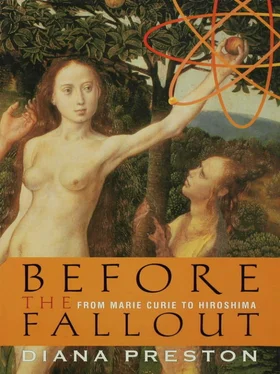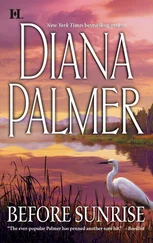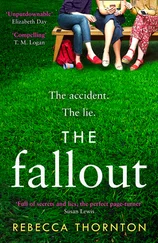In fact, interaction across these boundaries had begun before Los Alamos at the time when Leo Szilard was voicing his first concerns about the nuclear bomb. Such interchanges required a whole new set of skills from the scientists. To be good scientists had previously required people to be intelligent and knowledgeable in their own sphere. However, it did not require them to be good communicators, or good with people, to be politically aware, or to display good judgment of any kind in any area other than science, and even then only on a specialized subject. Atomic energy was perhaps the first subject among several that now exist—such as genetics and nanotechnology—to require scientists first to communicate their findings effectively and then to decide whether to express a view on their use or to present options or simply to say, “Here they are; this is what they mean; it is for others to decide to what use they should be put.”
Robert Oppenheimer’s view was simple: A scientist could not stop such a thing as the bomb. “If you are a scientist, you believe that it is good to find out how the world works; that it is good to find out what the realities are; that it is good to turn over to mankind at large the greatest possible power to control the world and to deal with it according to its lights and values.” However, individuals’ personalities determine what attitude they take to these challenges. Their abilities outside science determine their success. Niels Bohr was a great scientist and a warm, compassionate human being who found it easy to win the affection and respect, both scientific and general, of his colleagues. Yet, when he tried to move out of his own sphere into the political, he failed because he could not communicate properly. Within physics the difficulty of understanding him in print and in speech was well-known and affectionately tolerated. Robert Oppenheimer once said it was “easy for even wise men not to know what Bohr was talking about.” A greater ability to communicate (and perhaps to listen) might have given Bohr more political influence. It would certainly have provided greater clarity about some of the major events such as the Copenhagen meeting in which he was involved. Similarly, if Szilard had been less eccentric or egocentric, he might have won more allies and convinced more people. If Heisenberg had been more empathetic and less conceited, he might have seen things differently.
Marie Curie insisted that “in science we must be interested in things, not in persons.” William Penney, who retained no personal papers, went farther: “People are not important—history is too much about people.” Both were wrong. History—even the history of science—is inherently about people, how they thought, what they did with their thoughts, and how they interacted with the individuals immediately around them and then with society and the greater world order. All involved in this story—regardless of race, sex, creed, age, or intellectual ability—had the potential to act individually. In thinking about history but, above all, about the future, we should not depersonalize situations but remember our individual responsibility for them and the consequences for others. The plea of a Hiroshima survivor stands out: “When I was younger they used to call us atomic bomb maidens—more recently they called us hibakusha [atom bomb survivors]…. I don’t like this special view of us. I’d like to stand up as an individual.”
Abbreviations used in this section
AIP.American Institute of Physics, College Park, Md., U.S.
BBC.Interview and program transcripts in the production files of the BBC Written Archives Centre, Caver sham, Berkshire, U.K.
CCC.Churchill College, Cambridge, U.K. Among the papers consulted, JC denotes James Chadwick, LM denotes Lise Meitner, and NF denotes Norman Feather.
CUL/R.Cambridge University Library, Cambridge, UK/the Ernest Rutherford Papers.
CUL/S.Cambridge University Library, Cambridge, UK/Henry Stimson’s diary (on microfilm; the original is at Yale University).
LIV.Liverpool University Physics Department Archive, Liverpool, U.K.
LOC.Library of Congress, Washington, D.C., U.S.
NARA.U.S. National Archives and Records Administration, College Park, Md., U.S.
PRO.U.K. National Archive, Kew, London, U.K. Individual file numbers are given in each case.
UCLA/BL.University of California/ Bancroft Library, Berkeley, Calif., U.S.
“an airplane… blue sky”; “A parachute is falling”; “an indescribable light”: Account of Futaba Kitayama, published in Bombing Eye-Witness Accounts by Hiroshima City and available on the Hiroshima Peace Memorial Museum Web site.
“a giant purple… terribly alive”; “Fellows… history”: P. W. Tibbets, Mission Hiroshima, p. 227.
“When I… peeled off”; “Suddenly inaction”: Account of Futaba Kitayama.
“dried squid… to eat”: Account of Dr. Hiroshi Sawachika from www.inicom.com/hibakusha/hiroshi.html.
“cried after all”: P. Fussell, Kansas City Star and Times, 30 August 1981.
“This is history”: H. S. Truman, Year of Decisions, p. 421.
“This revelation… comprehension”: Times (London), 7 August 1944. (PREM/8/109, PRO contains the text and earlier drafts.)
“torturing regrets… moment”: P. Monck quoted in P. Boyer, By the Bomb’s Early Light, p. 16.
“witches’ sabbath”: Quoted in R. Pflaum, Grand Obssession — Madame Curie and Her World, p. 160.
“wholly new… away”: P. Jordan quoted in R. Jungk, Brighter Than a Thousand Suns, p. 9.
“It was… creation”: These quotes are from R. Oppenheimer’s 1943 BBC Reith Lectures reproduced in his book Science and the Common Understanding. The quotes are on p. 37.
“moonshine”: Rutherford quoted in the Times (London), 12 September 1933.
“physicists sin”: Los Alamos Science, Winter / Spring 19835. 20.
“not completely guilt”: BBC interview with Robert Oppenheimer for “The Building of the Bomb.”
“killed subject”: M. Oliphant quoted C. P. Snow, Variety of Men, p. 10.
“maid’s work”: Quoted in W Lanouette, Genius in the Shadows, p. 274.
“bombardment… cities”: Times (London), 2 September 1939.
“may… country”: The Frisch-Peierls memorandum (see chapter 9 for detailed reference).
One. “Brilliant in the Darkness”
“brilliant in the darkness”: Quoted in the Lancet, 21 November 1907.
“one of…youth”: M. Curie, Pierre Curie, p. 81.
“during these years future work”; “the habit… work”: Ibid. p. 82.
“icy atmosphere of criticism”: Letter of 18 March 1888, E. Curie, Madame Curie, p. 80.
“very cold lacked coal”; “to be able bedcovers”: M. Curie, Pierre Curie, p. 84.
“It was.allliberty”: Ibid., p. 85.
“the tender hours”: Pflaum, Grand Obsession, p. 40.
“a kiss need”: Quoted in S. Quinn, Marie Curie, p. 114.
“women… rare”; “when… struggle”: Pierre Curie’s entry in his diary as a young man of twenty-two, M. Curie, Pierre Curie, p. 36.
Читать дальше












